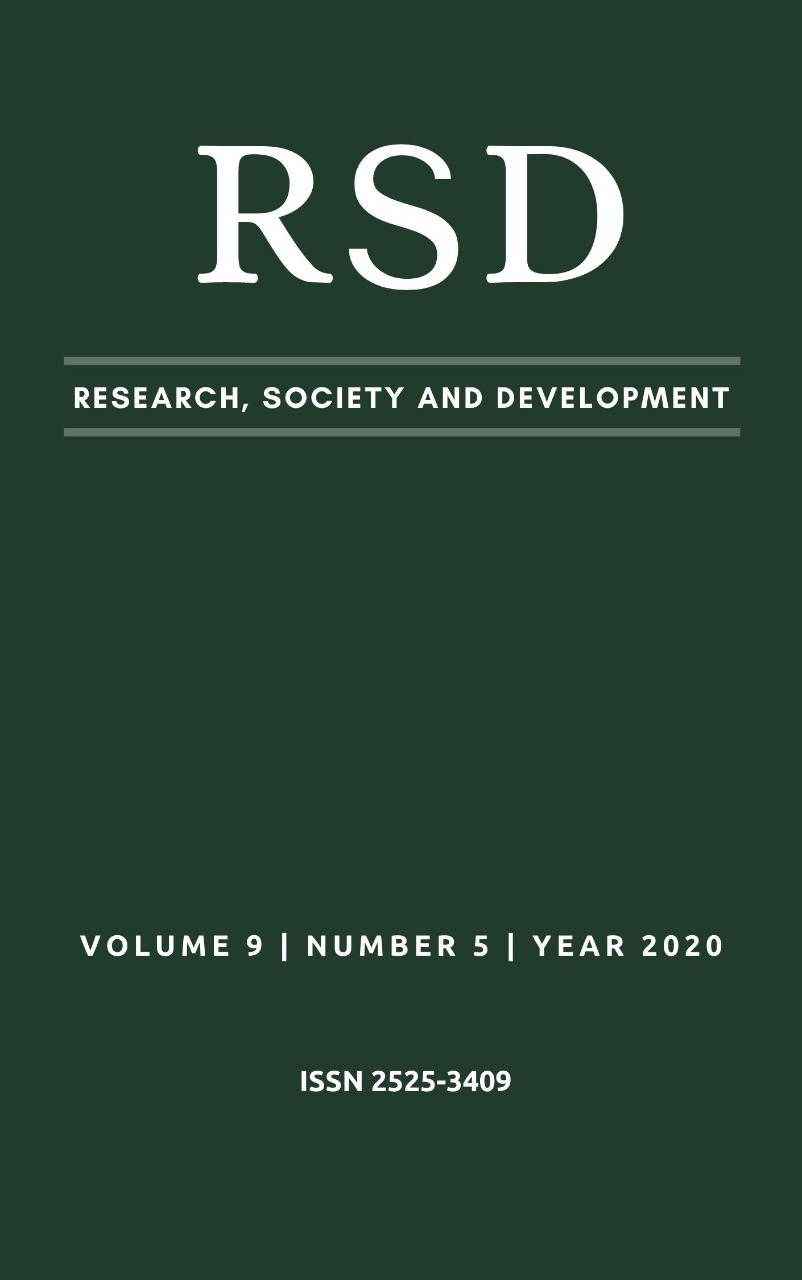Sobrevivência do transplantado renal a luz do pensamento ecossistêmico: contribuições do enfermeiro
DOI:
https://doi.org/10.33448/rsd-v9i5.3305Palavras-chave:
Sobrevivência, Transplante Renal, Enfermeiro, EcossistemaResumo
Objetivo: Refletir sobre a atuação e contribuição do enfermeiro, a luz do pensamento ecossistêmico, na sobrevivência do transplantado renal. Método: Caracteriza-se como uma reflexão teórico-filosófica acerca das contribuições do enfermeiro na sobrevivência do transplantado renal, a luz do pensamento ecossistêmico em analogia com autores que discutem a saúde na perspectiva ecossistêmica. Resultados e Discussão: A reflexão foi organizada e discutida por meio de três categorias: Doença renal crônica e transplante renal, na perspectiva ecossistêmica; O trabalho do enfermeiro no pré e pós-transplante; Contribuição da atuação do enfermeiro na sobrevivência do transplantado renal. Infere-se que o comportamento pode influenciar diretamente a sobrevivência do usuário. Considerações finais: Observa-se o sucesso do transplante renal depende das orientações do enfermeiro ao usuário em relação às melhores práticas de cuidados de prevenção, manutenção e, principalmente quanto aos riscos de infecções, sinais e sintomas de rejeição do órgão transplantado. Salienta-se ainda, que ao ancorar este estudo na perspectiva ecossistêmica, pode-se refletir sobre a atuação do enfermeiro além do ambiente hospitalar de alta que a literatura nos indica, mas sim no domicílio do usuário, local em que sua vida de pós transplante e sua sobrevivência realmente acontecem.
Referências
Associação Brasileira de Transplante de Órgãos (ABTO). (2007). Edição Comemorativa dos 10 anos do Registro Brasileiro de Transplantes - Brasil – 2007. [citado 2018 Mar 07]. Disponível em: http://www.abto.org.br/abtov02/portugues/populacao/rbt/rbt10anos/index.aspx?idCategoria=.
Brasil. (2020). Ministério da Saúde. Doação de Órgãos: transplantes, lista de espera e como ser doador. Disponível em: https://saude.gov.br/saude-de-a-z/doacao-de-orgaos.
Carrillo-Algarra, Mesa-Melgarejo & Moreno- Rubio. (2015). El cuidado en un programa de trasplante renal: un acompañamiento de vida / O cuidado num programa de transplante renal: um acompanhamento de vida. Aquichan, Bogota, abr-jun, 15(2): 271-82.
Capra, F. (2014). A visão sistêmica da vida. São Paulo: Cultrix.
Inácio, L.A. et al. (2014). Atuação do Enfermeiro nas orientações de alta ao paciente pós-transplante renal. REUFSM, Santa Maria, abr/jun, 4(2):323-331.
Lamb, D. (2000). Transplante de Orgãos e Ética. Trad. Jorge Curbelo. São Paulo: Sociedade Brasileira de Vigilância de Medicamentos/Editora Hucitec.
Maturana, H.R. & Varela, F.J. (2011). A árvore do conhecimento: as bases biológicas da
compreensão humana. 9ª Edição. São Paulo: Palas Athenas.
Pandya, S. & Souza, E. (2014). Previna-se, salve seus rins.1ª Ed. Rio de Janeiro, SamarpanKidney Foundation.
Salmela, K. et al. (1995). Renal Transplantation. Atlas of Clinical Transplantation. In: Ari Harjula , Krister Hockerstedt. Copyright © Recallmed Ltd.
Santos, B.P. et al. (2016). Transplante renal: análise comportamental a partir da técnica dos incidentes críticos. REV Aquichan. CHIA, Colômbia; 16(1):1,83-93..
Santos, B.P. et al. (2017). Care carried out by people with renal transplants for organ maintenance. Rev Enferm UFPE, 11(8): 3108-21. doi: 10.5205/reuol.11064-98681-4-ED.1108201716
Silva, L.C. et al. (2013). O Transplante renal na perspectiva da pessoa transplantada. Cienc Cuid saúde, 12(2): 356-64.
Simpson, C.A. & Silva, F.S. (2013). Trajetória de vida de transplantado renais: apreendendo as mudanças ocorridas na vida dos pacientes. CiencCuid saúde, 12(3):467-474.
Scatolin, B. et al.(2015). Atividade de vida diária dos pacientes em tratamento de diálise peritoneal intermitente com clicadora. Arq. Ciênc. Saúde,17(1):15-21.
Siqueira, H.C.H. et al. (2018). A saúde do ser humano na perspectiva ecossistêmica. Rev enferm UFPE, 12(2):559-64.
Smeltzer, S.C. et al. (2016). Tratado de enfermagem médico-cirúrgica. Volume 2, 13.ed. Rio de Janeiro: Guanabara Koogan.
Tabriziani, H. Lipkowitz, M.S. & Vuong, N.(2018). Chronic kidney disease, kidney transplantation and oxidative stress: a new look to successful kidney transplantation, Clinical Kidney Journal, 11(1):130–135. doi: https://doi.org/ 10.1093/ckj/sfx091
Zamberlan, C. et al. (2018). Guidance for children of fathers/mothers with heart disease: possibilities and approaches. Rev enferm UERJ, 26:e28057. doi: https://doi.org/10.12957/reuerj.2018.28057
Downloads
Publicado
Edição
Seção
Licença
Autores que publicam nesta revista concordam com os seguintes termos:
1) Autores mantém os direitos autorais e concedem à revista o direito de primeira publicação, com o trabalho simultaneamente licenciado sob a Licença Creative Commons Attribution que permite o compartilhamento do trabalho com reconhecimento da autoria e publicação inicial nesta revista.
2) Autores têm autorização para assumir contratos adicionais separadamente, para distribuição não-exclusiva da versão do trabalho publicada nesta revista (ex.: publicar em repositório institucional ou como capítulo de livro), com reconhecimento de autoria e publicação inicial nesta revista.
3) Autores têm permissão e são estimulados a publicar e distribuir seu trabalho online (ex.: em repositórios institucionais ou na sua página pessoal) a qualquer ponto antes ou durante o processo editorial, já que isso pode gerar alterações produtivas, bem como aumentar o impacto e a citação do trabalho publicado.


